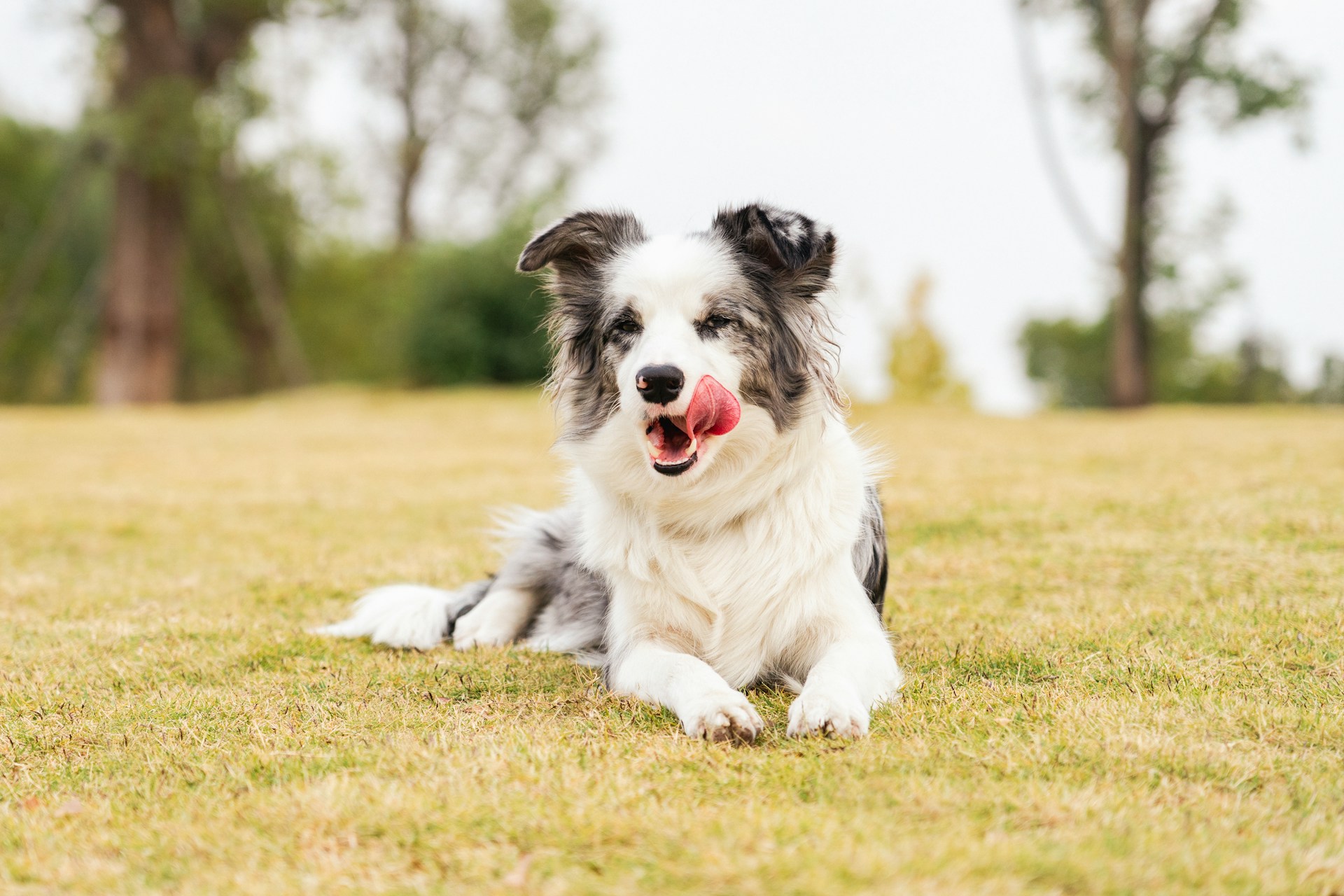Understanding Cortisol Levels in Reactive Dogs: Insights and Implications
Reactive dogs often exhibit heightened responses to various triggers, causing stress for us as owners and our dogs. One of the most critical aspects of this reactivity is the role of cortisol, a stress hormone that significantly impacts a dog's behaviour and overall health. If you are anything like us, when we first began our training journey for our reactive dog, we knew nothing about the impact of cortisol (on either dogs or humans). Today, we're diving into the research surrounding cortisol levels in reactive dogs, shedding some light on the intricate relationship between stress and reactivity in our canine companions.

What is Cortisol?
Simply put, cortisol is a hormone produced by the adrenal glands in response to stress. It plays a vital role in various bodily functions, including metabolism, immune response, and stress regulation. In dogs, as in humans, elevated cortisol levels indicate heightened stress, which can manifest in countless ways, including increased reactivity.
The Connection Between Cortisol and Reactivity in Dogs
Studies have shown that reactive dogs often have higher cortisol levels than their more relaxed counterparts. This elevation in cortisol can result from various stressors, such as unfamiliar environments, loud noises, or encounters with other animals or strangers. The heightened stress response can exacerbate reactive behaviours, creating a cycle that is extremely challenging for the dog to break.
Research Findings on Cortisol Levels in Reactive Dogs
Recent research has provided valuable insights into how cortisol affects reactive dogs. If you are interested in the research surrounding this blog post, please refer to the article, 'Physiological Stress Reactivity and Recovery Related to Behavioural Traits in Dogs (Canis Familiaris)' and its references, for an in-depth view of the findings. One notable study observed that reactive dogs not only have higher baseline cortisol levels but also exhibit more significant cortisol spikes in response to stressors. This suggests that reactive dogs experience a more intense and prolonged stress response, which can adversely affect their behaviour and health.

Key Takeaways from the Research:
- Elevated Baseline Cortisol: Reactive dogs often maintain higher baseline levels of cortisol, which is indicative of chronic stress.
- Increased Cortisol Spikes: In reaction to stressors, these dogs show more substantial spikes in cortisol, highlighting a heightened stress response to their immediate environment.
- Recovery Times: Dogs with a longer recovery time (the time before levels of cortisol-related physiological markers returned to baseline) would be less successful in coping with stressful situations and are likely more prone to display undesirable reactive behaviours.
- Behavioural Impact: High cortisol levels are linked to increased anxiety and aggression, which are common traits in reactive dogs. Research also indicates that there is a significant difference between dogs that either passed or failed an aggression test when considering the change in salivary cortisol levels.
- Health Implications: Chronic stress and elevated cortisol can lead to various health issues, including weakened immune function and metabolic disorders. This is because cortisol has an immunosuppressive effect on the body.

Managing Cortisol Levels in Reactive Dogs
Unfortunately, as a reactive dog owner, there is no precise way to fix your dog's physiological response to triggers. However, understanding the connection between cortisol and reactivity is the first step toward managing and reducing stress in reactive dogs. While we have explored some management techniques like Creating a Safe Home Environment for Reactive Dogs and Strategies for Living with a Reactive Dog, here are some fundamental methods to help lower cortisol levels and improve your dog's well-being.
- Consistent Routine: One of the easiest ways to reduce stress in our reactive dogs is to establish a predictable routine. Your dog understands routines, such as when they typically receive their meals and thrives off having predictability in the household.
- Safe Spaces: Create a safe and quiet space where your dog can retreat during stressful situations. You may also consider utilising a cue for your dog to go to their safe space when you believe they need some downtime.
- Positive Reinforcement: Use positive reinforcement techniques to encourage calm behaviour and reduce reactivity. Check out our blog on Positive Reinforcement Techniques for additional information.
- Regular Exercise: While there is some benefit in keeping our dogs calm, regular physical activity can actually help lower cortisol levels and improve overall health.
- Professional Training: Consult with a professional dog trainer or behaviourist who specialises in reactive dogs to develop a tailored training plan. Consider Group Classes for Reactive Dogs so that you can learn how to manage your pup around others and receive support.
- Stress Reduction Techniques: Incorporate stress-reducing activities such as a daily massage or brush, aromatherapy, white noise machines, or calming music.

The Role of Diet and Nutrition
A well-balanced diet can also play a critical role in managing cortisol levels in reactive and anxiety-ridden dogs. Certain nutrients and supplements are known to support stress reduction, some of the most prominent including:
- Omega-3 Fatty Acids: Found in fish oil, these can help reduce inflammation and support brain health.
- L-theanine and L-tryptophan: These amino acids can promote relaxation and reduce anxiety. We recommend consulting with your veterinarian before beginning specific amino acids because some dogs can have side effects such as drowsiness, stomach pain, vomiting, diarrhea, headache, blurry vision, and others.
- Probiotics: A healthy gut can positively influence a dog's stress levels and overall well-being.
The Importance of Mental Stimulation
Mental stimulation is just as (if not more than) important as physical exercise in reducing stress and managing cortisol levels in reactive dogs. Engaging your dog in activities that challenge their mind can help alleviate anxiety and prevent boredom-related behaviours.
- Interactive Toys: Check out our blog post on How Toys Can Contribute to Your Dog's Mental and Physical Wellbeing and Best Enrichment Activities. Puzzles and treat-dispensing toys can keep your dog engaged and mentally stimulated for hours - and a tired dog is a happy dog.
- Training Sessions: Regular training sessions not only provide mental exercise but also strengthen the bond between you and your dog. Take some time each morning or afternoon and spend 20-30 minutes in your garden working on new tricks or behaviours. This can be as simple as setting up a homemade agility course for your pup to run through.
- Scent Work: Activities that engage your dog's sense of smell can be incredibly enriching and stress-reducing. Using containers or plastic bowls, hide treats in different places around your garden - under things, behind things, and work on teaching your pup "Find it!" as a fun scent work activity.

Seeking Veterinary Advice
If you suspect your dog has high cortisol levels and is experiencing significant stress, it's essential to consult with your veterinarian. Your veterinarian can conduct tests to measure cortisol levels and provide guidance on managing stress and reactivity through medical and behavioural interventions.
Final Comments: Improving Life for Reactive Dogs
Understanding and addressing the role of cortisol in reactive dogs can significantly enhance their quality of life. By incorporating stress-reduction strategies and providing a supportive environment, you can help your furry friend lead a happier, healthier life. As with all reactive dog training methods, you need to remember that patience and consistency are key when working with reactive dogs. Your efforts can make a world of difference in managing their stress and improving their overall well-being.



